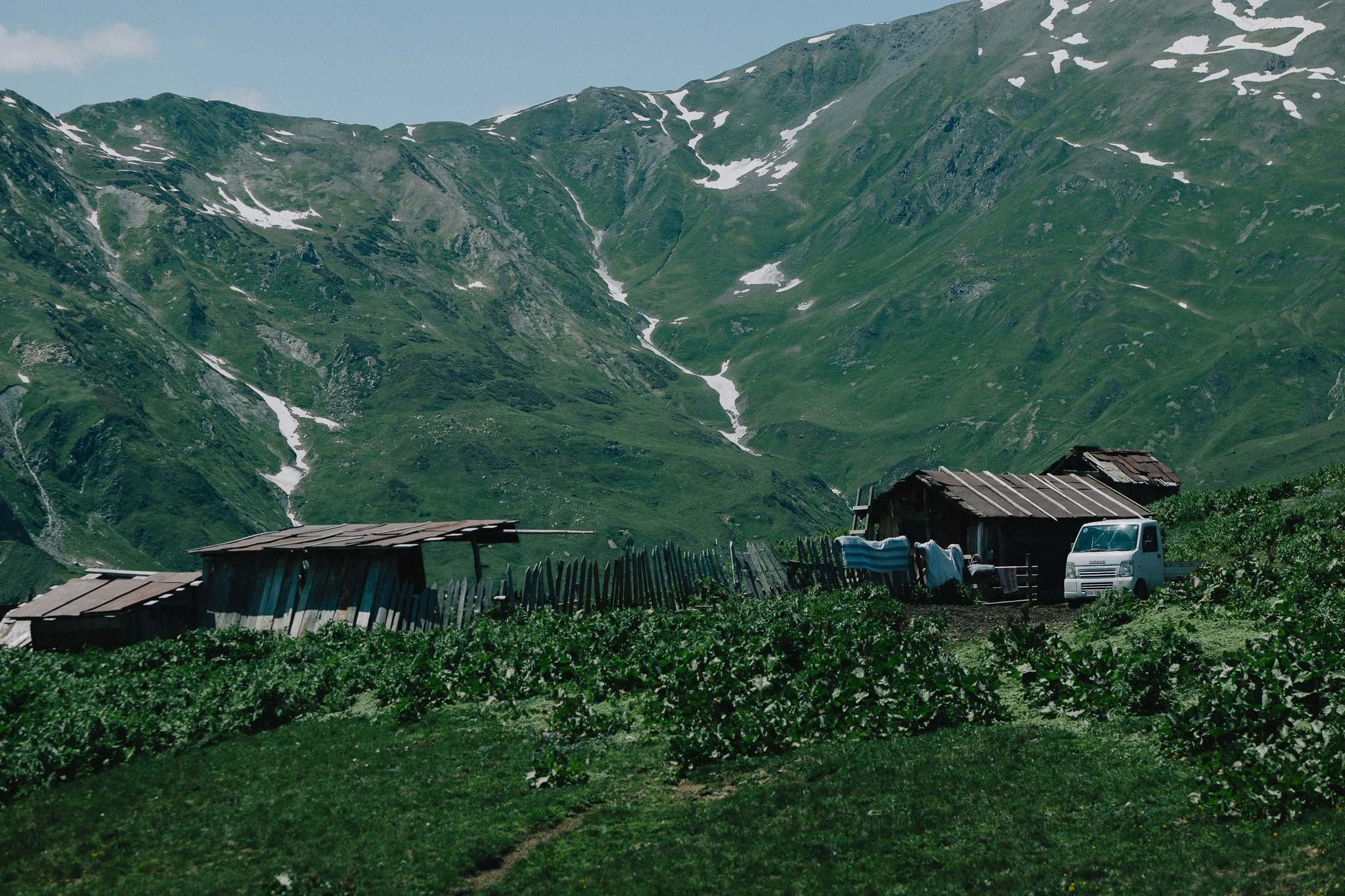Wife Stealing
A journey through beauty and brutal customs
The cinematic equivalent of a one-horse town is a one-movie cinema.
Cinema Dede, in the mountain town of Mestia in the Svaneti region of Georgia, is such a cinema.
It shows only Dede (Georgian for ‘Mother’) - the story of a local girl in the 1990’s forced into multiple marriages, as well as the culture and beliefs that surrounded what was a common practice until not so long ago.
It’s a powerful story that bulldozes any romantic idealism of an imagined simple village life in Svaneti.
Beautiful surrounds, yes - but also brutal and unforgiving.
Tamar, the sister of the film’s producer, runs the cinema and is happy to chat about the story and Svaneti life.
A distant relative of hers was forced into marriage.
Four times.
“What happened to the other three husbands?” I asked, naively.
“They died. That’s what happened here. It was a tough and dangerous life in these mountains,” she shrugged.
Widowed three times. Forced into marriage four.
Women generally outlive men, so it’s likely she was widowed a fourth time but too old to marry again.
Tamar’s personal family story said much; this wasn’t some simplistic ‘man steals wife = patriarchy, man bad’ story. These were people living desperate, dangerous, isolated lives.
The technique to get yourself a wife was quite simple; gather a few mates, ride or drive to where the girl might be, snatch her away, and threaten a never-ending blood feud if the family didn’t agree to the union.
Another method shown in Dede was to wrap a bullet in a neck scarf and toss it into her house.
A not-so-subtle hint of things to come if the ‘request’ isn’t accepted.
And an interesting take on the art of seduction.
But it wasn’t a lawless society; religious observance (Orthodox Christianity) governed much of their lives.
The film didn’t show how The Church officially reconciled the forced unions. We saw only strong (local) counsel being given, which stopped short of outright forbiddance.
A council/trial scene in the film showed how faith interwove with law and social harmony.
Gege, the protagonist, was brought before a council of male elders to answer the charge of murdering another Svaneti man, David.
Urschel bore witness to Gege’s innocence, saying the death of David was suicide by gunshot, and not murder (suicide being preferable to the shame of losing a woman to another man).
To resolve the case, Gege and Urschel were forced to swear before the council and God, his innocence.
The council, once making its decision, would also swear to God that Gege was innocent.
With this custom, a lie was no longer just a lie told to a personally distant judge or jury.
No, a lie implicated the council of your respected village elders and relatives, and the fate of their eternal souls, in your lie…before your common God.
Just pause on that for a moment.
And it’s easy to see why the idea of honour ran so deep, as well as the concept of ‘a good neighbour’ which ran through the movie.
In the absence of fingerprints, video evidence, DNA or CSI Svaneti swooping in, honour is a necessary virtue.
No man was an island. Interdependency and honouring commitments were key to survival.
The council system incorporated a profound function of religion I’d never really contemplated.
Those older customs aren’t so dead.
Tamar explained that once it was the case that should a girl even be seen with a man, she must marry that man.
Only recently she met a 24-year-old girl from a small village outside Kutaisi who had met a boy she liked in Kutaisi, back when she 16.
A woman from the village saw the two of them meet and from then, the boy and girl were forced to marry. Eight years ago.
Genetic diversity, continuation of bloodlines, avoidance of conflict - all functionally useful customs. But emotionally devastating for all involved.
It may seem the men had the upper hand, being able to steal a woman and all that, but in a world of pride and honour, the social pressures were immense.
Hence David’s suicide in the movie.
After all the blunt force(d) unions, the men still wanted to be loved. Because they were still human, after all.
And let’s not forget some of those men paid the ultimate price in the quest for survival.
Mestia was a town I didn’t want to leave.
Nestled in the mountains, time drifted by as cows with their jangling cowbells strolled through the streets, and the clouds clung then tore themselves away from the surrounding peaks.
Its beauty is seductive. Its dark past less so.












